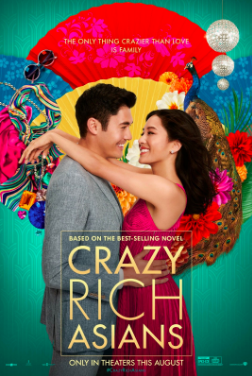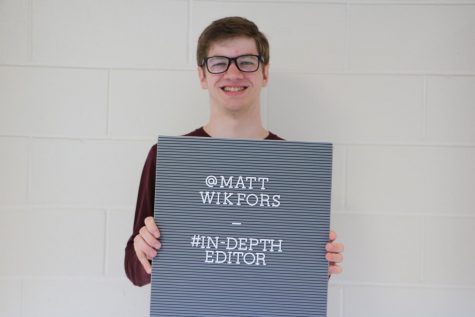Hollywood Is Running Out of Original Ideas

Hollywood seems to be falling into a comfortable and somewhat lazy trend. Take the movie Crazy Rich Asians. It’s a massively successful movie grossing 165.6 million dollars at the box office so far, with a sequel already in development. It tells the story of a Chinese-American professor who accompanies her Chinese boyfriend to his best friend’s wedding in Singapore. There, she learns that her boyfriend is part of the wealthiest family in Singapore and contends with the lavish lifestyles of the people she meets while proving to her boyfriend’s prestige-obsessed mother that she is enough for her son. It’s an engaging story that tackles the issues of cultural appropriation and the impact that rigid Chinese traditions have on modern life. Too bad it was told by somebody else first.
In the credits of the movie, it’s revealed that the movie was based off of the acclaimed book Crazy Rich Asians by Singaporean author Kevin Kwan. Does this surprise moviegoers? It probably shouldn’t. It’s all part of the latest trend that Hollywood seems to be pushing, a trend focused on adaptations of books and true stories.
“I think that there are so many different stories out there in the world that take place, so it’s kind of lazy for [Hollywood] to use them as movies,” said senior Sophie Mazzei.
Some of the biggest, or at least most anticipated hits this year are all adaptations of already existing stories, real and fictional. A Wrinkle In Time, Ready Player One, The Post, and Love, Simon, are only a few examples. Even two of the most recent films to hit cinemas Operation Finale, based on the novel Nazi Hunters, and White Boy Rick, based on the true story of FBI informant Richard Wershe Jr., follow this Hollywood trend. Not even instant hits of recent years like Frozen are free from this trend, seeing as how the Disney megahit was inspired by the fairy tale The Snow Queen.
This trend of taking previously existing works and adapting them into movies has been nothing new, but feels so much more apparent now than it did in the early 2000s. It’s a seemingly low-effort trend that allows directors to lazily cobbled together a movie using major plot points from the existing work while adding in a few scenes of their own to add their own artistic touch. And audiences will end up seeing these movies regardless of how bad they are. Hollywood seems to be adapting a lot of works we are familiar with into movies solely to cash in on nostalgia or popularity.
Remember The Cat In The Hat? Of course you do, but probably don’t want to. It was an hour and a half movie adapted from the famous Dr. Seuss book of the same name featuring awful acting, hideous special effects, creepy facial expressions, lazy and cheap jokes, as well as numerous innuendos not suited for a movie with a PG rating. The same poor quality or laziness applies to numerous other adaptations of books and true stories like How The Grinch Stole Christmas, Divergent, Jobs, and Alexander. Some of these “true story” movies aren’t really even true at all; they’re either five percent true with the remaining portion being Hollywood drama or are completely untrue in their portrayal for the sake of money and flair, like The Social Network.
“The movie version of Divergent was so inaccurate and made me so upset. It was nothing like the book and they took the characters and twisted the story,” said sophomore Reece Ferrentino.
However, a movie adaptation of a book or true event does not equal a terrible or lazy movie. The Harry Potter series was already a best-selling series full of adventure, danger, and magic. The movies, while cashing in on the franchise towards the end of their run, adapted the material really well with stellar acting and direction, launching the careers of Emma Watson and Daniel Radcliffe in award-winning roles of such beloved characters. Ready Player One was also a smash success, riding off of the coattails of Strangers Things in terms of pop culture, delivering reference after references 90s icons like Chucky from Child’s Play and even modern references like including Tracer from the massively successful game Overwatch.
“The Harry Potter movies were great adaptations, said senior Ally Pernac. “The effects were amazing and the movie was brought to life exactly the way I thought it was.”
In fact, many of the “based on a true story movies” are amazing as well. Sully, although marked with slight controversy, was a striking portrayal of a contemporary hero with strong acting and an emphasis on the impact it had on Sully and the fallout of his actions. The Post was an exciting story about political cover-up, overcoming gender stereotypes, and investigative journalism at its finest. Bohemian Rhapsody, a movie detailing Freddie Mercury’s life and his reunion with Queen at Live-Aid to perform their hit song “Bohemian Rhapsody,” is an anticipated film because of the cultural impact Queen has left behind.
There’s nothing completely wrong with Hollywood embracing this trend of adaptation over original ideas. Most adaptations are done well- or at least decently enough (the terrible ones still stick out like a sore thumb though). But we’ve seen that Hollywood can be creative and really let loose from the standards it has set for itself. Films in the past few years like Inside Out and A Quiet Place are a breath of fresh air, with Inside Out creatively portraying what goes on in our mind and A Quite Place inverting classic horror movie tropes to create an innovative and terrifying experience.
It’s understandable that original and creative ideas are hard to come by when it feels like everything has already been done. But the current trend feels lazy and a little uninspired. It doesn’t matter how well you can infuse Hollywood magic into a story or cast the best actors possible. An adaptation of a book or true story will always have an air of laziness, and it should cause people to be concerned about where the future of Hollywood and moviemaking is headed.

Matt is a senior and this is his second year as the In-Depth editor for The Trailblazer. Matt is excited to lead writers into hard-hitting journalism and write exposés. Although he’s sad his time is ending soon, he knows that his proteges will do well, but until then, he is ready to teach them all he knows!










































